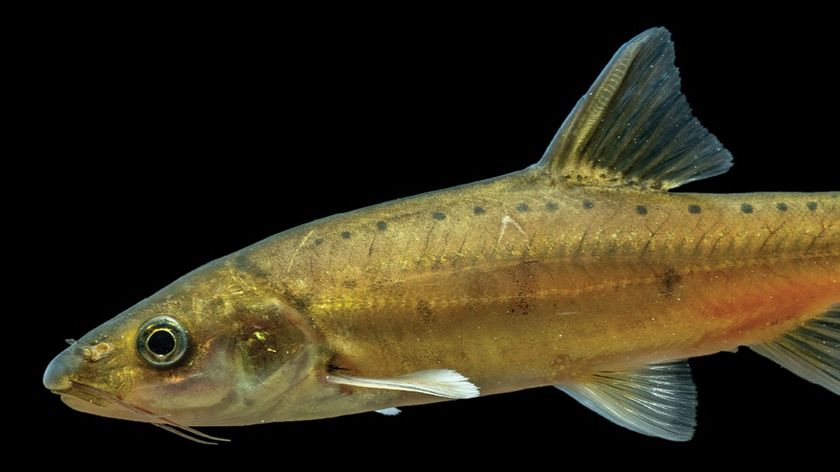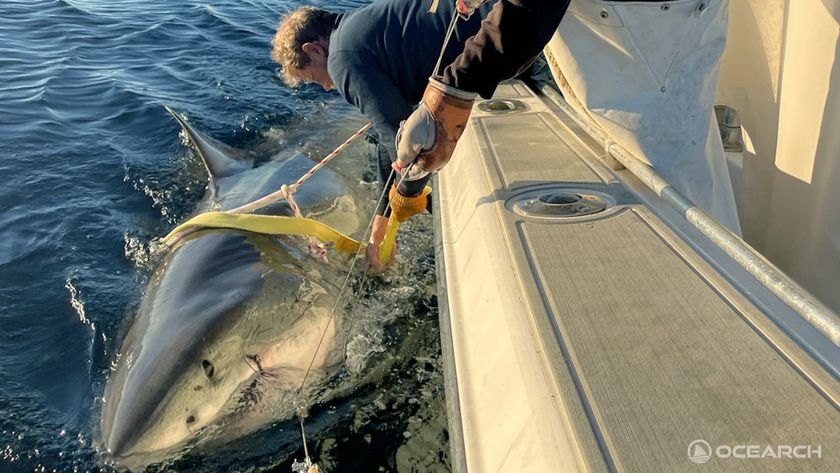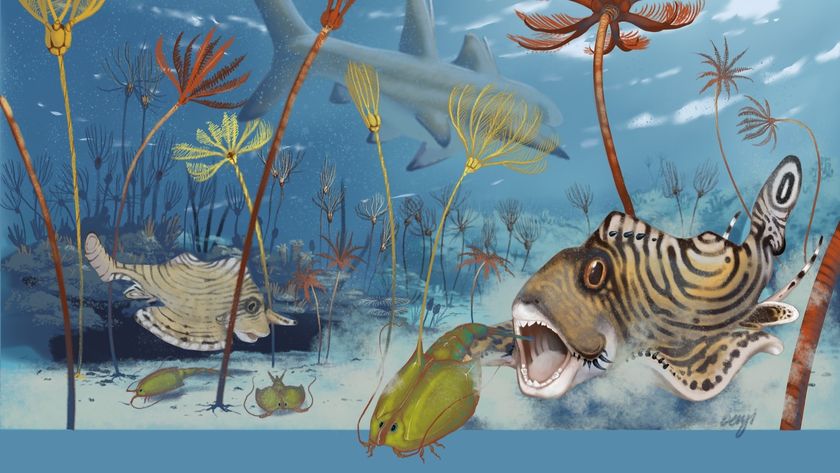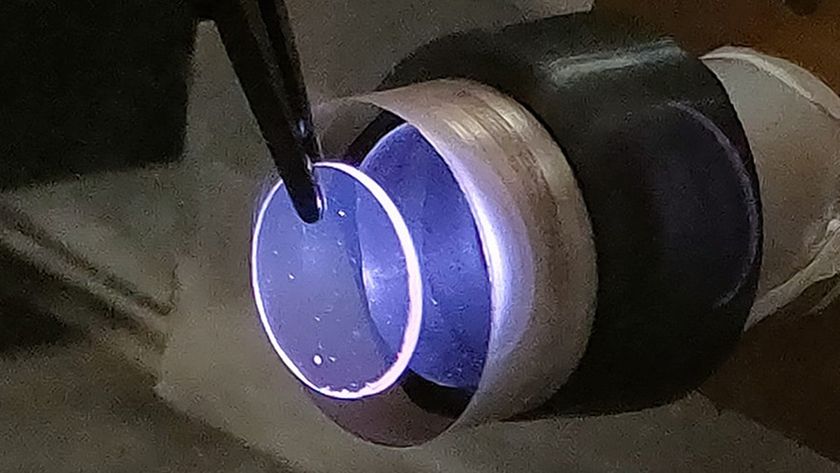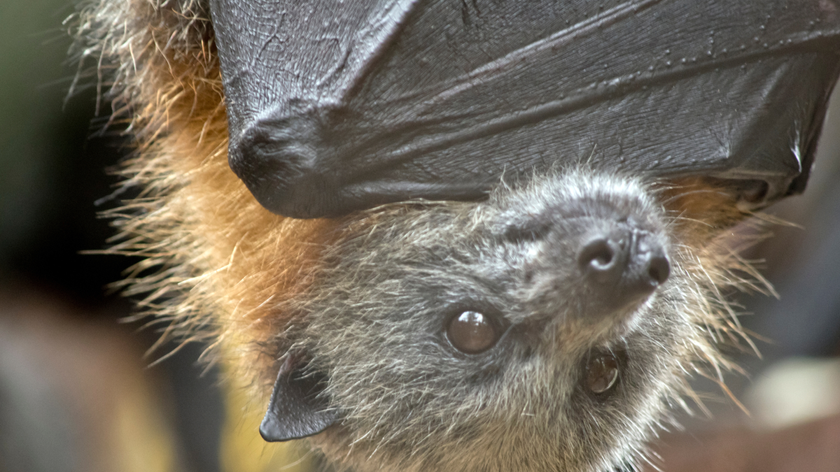Fish 'Bodyguards' Protect Coral from Seaweed Attack
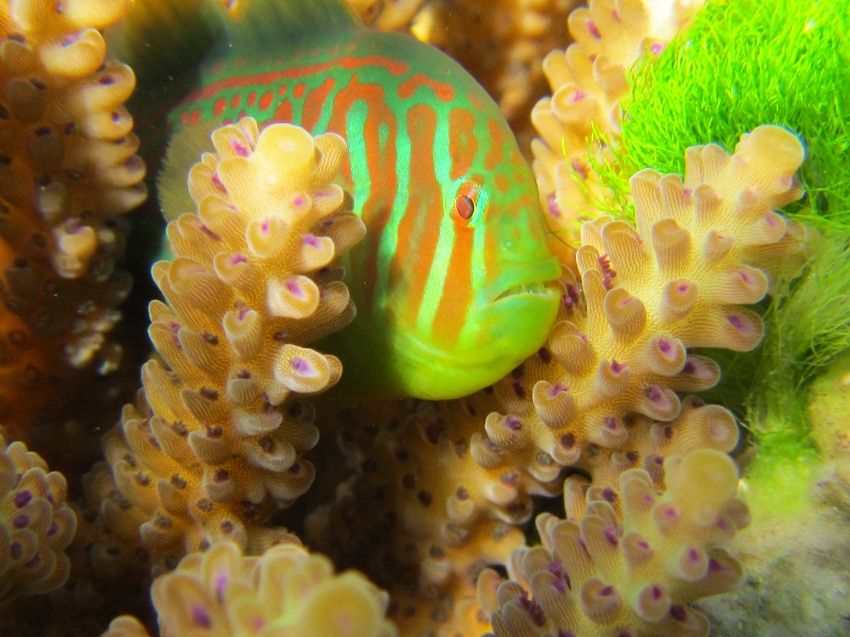
When one kind of coral is under attack from killer seaweed, it sends chemical signals to little fish "bodyguards" that come to its rescue and handily take care of the problem, new research shows.
In their experiments, a group of scientists exposed sets of a rapidly growing coral from around Fiji (Acropora nasuta), to filaments of the seaweed species Chlorodesmis fastigiata, which is chemically toxic to corals. Some corals in the study were occupied by one-inch fish called gobies, which, within minutes, would begin neatly biting away at the offending seaweed.
"These little fish would come out and mow the seaweed off so it didn't touch the coral," study researcher Mark Hay, a biologist at the Georgia Institute of Technology, said in a statement. "This takes place very rapidly, which means it must be very important to both the coral and the fish. The coral releases a chemical and the fish respond right away."
Control corals with no fish protectors saw no change in the amount of toxic seaweed that latched on to them and they were badly damaged. In contrast, the amount of damage declined by 70 to 80 percent within three days for the corals living with gobies, the researchers found.
Further tests showed that the little mercenaries were not attracted to the seaweed itself, suggesting that the coral is emitting some signal or odor that draws the fish.
"There is a careful and nuanced dance of odors that makes all this happen," Hay explained. "The fish have evolved to cue on the odor released into the water by the coral, and they very quickly take care of the problem."
And by stepping in to defend the corals, the gobies are protecting the place where they take shelter and eat.
Sign up for the Live Science daily newsletter now
Get the world’s most fascinating discoveries delivered straight to your inbox.
"The coral gets a bodyguard in exchange for a small amount of food," Hay said. "It's kind of like paying taxes in exchange for police protection."
There are other species in nature that call in enforcers to fight proxy wars against predators and parasites. A study published online in September in the journal PLoS ONE detailed how a type of cabbage sends out chemical distress signals, attracting wasp hitmen to protect the plant from butterfly colonization.
The new study appears this week in the journal Science and was funded by the National Science Foundation.
Follow LiveScience on Twitter @livescience. We're also on Facebook & Google+.

